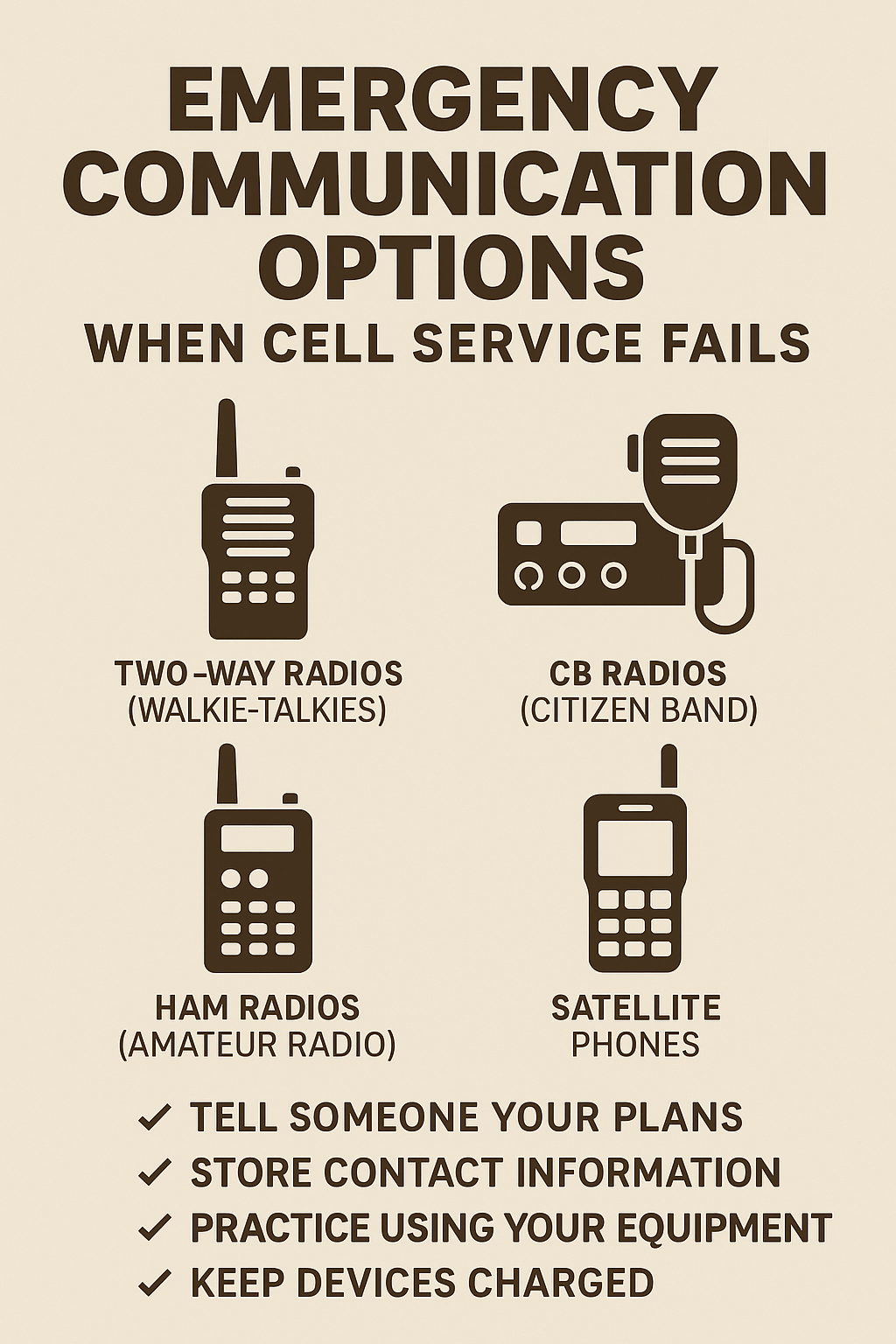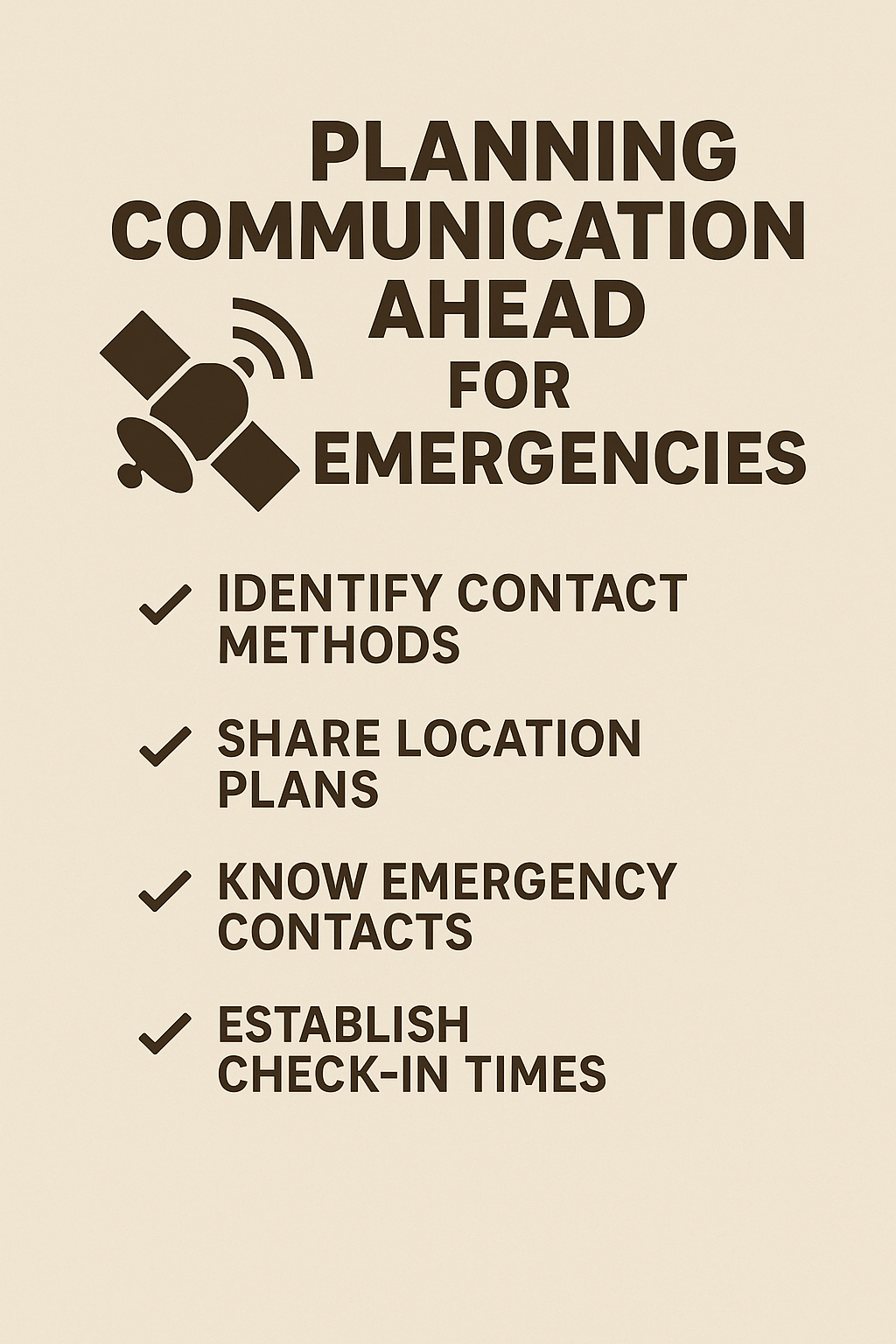Emergency Communication Options When Cell Service Fails
Why Communication Matters in Remote Areas
When you own remote land or spend time camping off-grid, you can’t always rely on cell service. Mountains, dense forests, or distance from towers can make coverage unreliable—or nonexistent. In an emergency, having a backup communication plan is essential for safety and peace of mind.
Top Emergency Communication Tools
1. Two-Way Radios (Walkie-Talkies)
A reliable short-range option, two-way radios work without cell towers. They’re ideal for staying in contact with others on your property or nearby.
Range: 1–5 miles depending on terrain.
Pros: Affordable, portable, easy to use.
Cons: Limited range and clarity in mountainous areas.
2. CB Radios (Citizen Band)
Commonly used by off-roaders and truckers, CB radios allow communication over moderate distances without licenses.
Range: Up to 15 miles in ideal conditions.
Pros: Widely used, inexpensive.
Cons: Signal quality depends on terrain and weather.
3. Ham Radios (Amateur Radio)
Ham radios provide long-range communication and can connect to emergency networks. They require a license to operate.
Range: Dozens of miles (more with repeaters).
Pros: Excellent range, emergency network access.
Cons: Learning curve, requires licensing.
4. Satellite Phones
These phones connect directly to satellites, making them one of the most reliable options when cell service is unavailable.
Range: Global coverage.
Pros: Works anywhere with a clear sky view.
Cons: Expensive equipment and monthly fees.
5. Personal Locator Beacons (PLBs) & Satellite Messengers
Small, portable devices that send distress signals to emergency services or allow basic texting via satellite.
Pros: Lightweight, SOS capability, some models allow GPS tracking.
Cons: Limited messaging options, subscription required for some models.
Planning Communication Ahead for Emergencies
Having the right device is only part of the solution. You should also:
Tell Someone Your Plans – Share your location and expected return time before heading out.
Store Contact Information – Keep emergency numbers written down in case your phone dies.
Practice Using Your Equipment – Know how to operate your radio, satellite phone, or beacon before an emergency.
Keep Devices Charged – Carry extra batteries or a solar charger for multi-day trips.
FAQ’s
Do I need a license for ham radios?
Yes, the FCC requires a license for ham radio operation, but not for CB or most two-way radios.
Are satellite phones worth it for occasional use?
If you spend time in very remote areas, a satellite phone or messenger can be a lifesaver even if used rarely.
What’s the cheapest backup option?
Two-way radios or CB radios are budget-friendly and effective for short distances.
Why Choose Mountains West Ranches
We understand that remote living comes with unique safety needs. When you buy land with us, we can help you plan for essentials like emergency communication, off-grid power, and year-round access—so you can enjoy your land with confidence.


